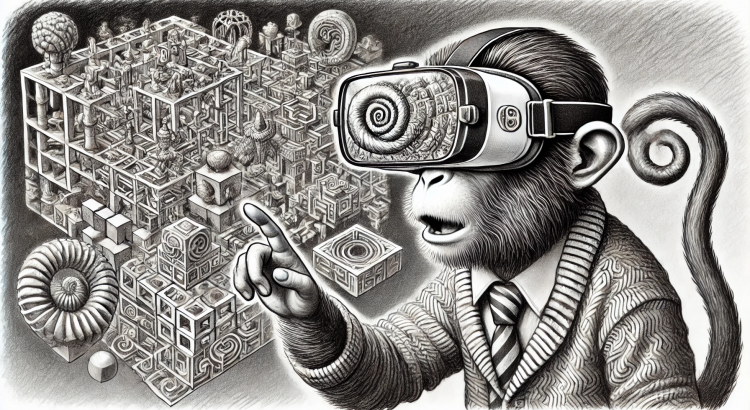On an episode of Neil deGrasse Tyson’s Star Talk, Neuroscientist Susana Martinez-Conde had some things to say about how our brains fool us by constructing stories (which may have nothing to do with reality). It’s a survival advantage, but we’re often wrong.
(Still, we can do our best to double-check our work by studying logical fallacies and cognitive biases. Hey, look: The Narrative Fallacy.)
I edited their speech for readability.
• • •
MARTINEZ-CONDE: The neuroscience of illusion in general, I think, is at the heart of my career. And illusions are so interesting to neuroscientists because illusions are the discrepancy between reality and perception. So, if you understand what the brain is doing, when you experience an illusion, that’s really what a whole lot of neuroscience is about.
What happens with some illusions is that even if you know they’re not real, you know your brain is tricking you, but you can’t make yourself see it any other way. So there’s a disconnect. We’re so easily fooled.
TYSON: If we’re so easily fooled, how did we last this long as a species?
MARTINEZ-CONDE: Because illusions are useful. There’s a misunderstanding that illusions are something that we should try to get rid of. But in fact, illusions make us faster and more able to survive.
TYSON: [How is] not seeing reality [a] survival benefit?
MARTINEZ-CONDE: We don’t have the neural machinery that can [see reality exactly as it is]. We just don’t have the hardware or the software that would be necessary. The computing power would be disastrous. […] Metabolically, just think about reaction times. We don’t need to see reality as it is.
We need to see reality close enough to make it out alive.
TYSON: Interesting, because we can’t see the flapping of the wings of a hummingbird. But if we did, that would require much more processing power in our brains and eyes. But I guess that was not important to our survival.
MARTINEZ-CONDE: Exactly. Maybe if you’re a hummingbird, it would be important to your survival to see another hummingbird[’s wings flapping].
OTHER HOST: We’ve created our own simulation in a certain sense.
TYSON: Don’t say that. That’s scary. You’re scaring me. You’re saying our version of reality is our own simulation.
MARTINEZ-CONDE: It is a construct. You’re absolutely correct.
TYSON: Construct, that’s the better word.
MARTINEZ-CONDE: Yeah, well, I like the word simulation, too. Because we’re making it up. We construct more than reconstruct. We take little bits and pieces of the information that comes in and we make up a whole lot of the rest. So we do create a grand simulation.
TYSON: To put it that way, it makes me wonder, we get bits and pieces of reality that if they don’t otherwise make sense, we try to make sense out of it. And the sense-making can be fraught with all kinds of error.
MARTINEZ-CONDE: The brain is a storyteller. We tell ourselves stories about what’s happening. It may have nothing to do with reality.
• • •
Read Susana Martinez-Conde’s book, Champions of Illusion.
